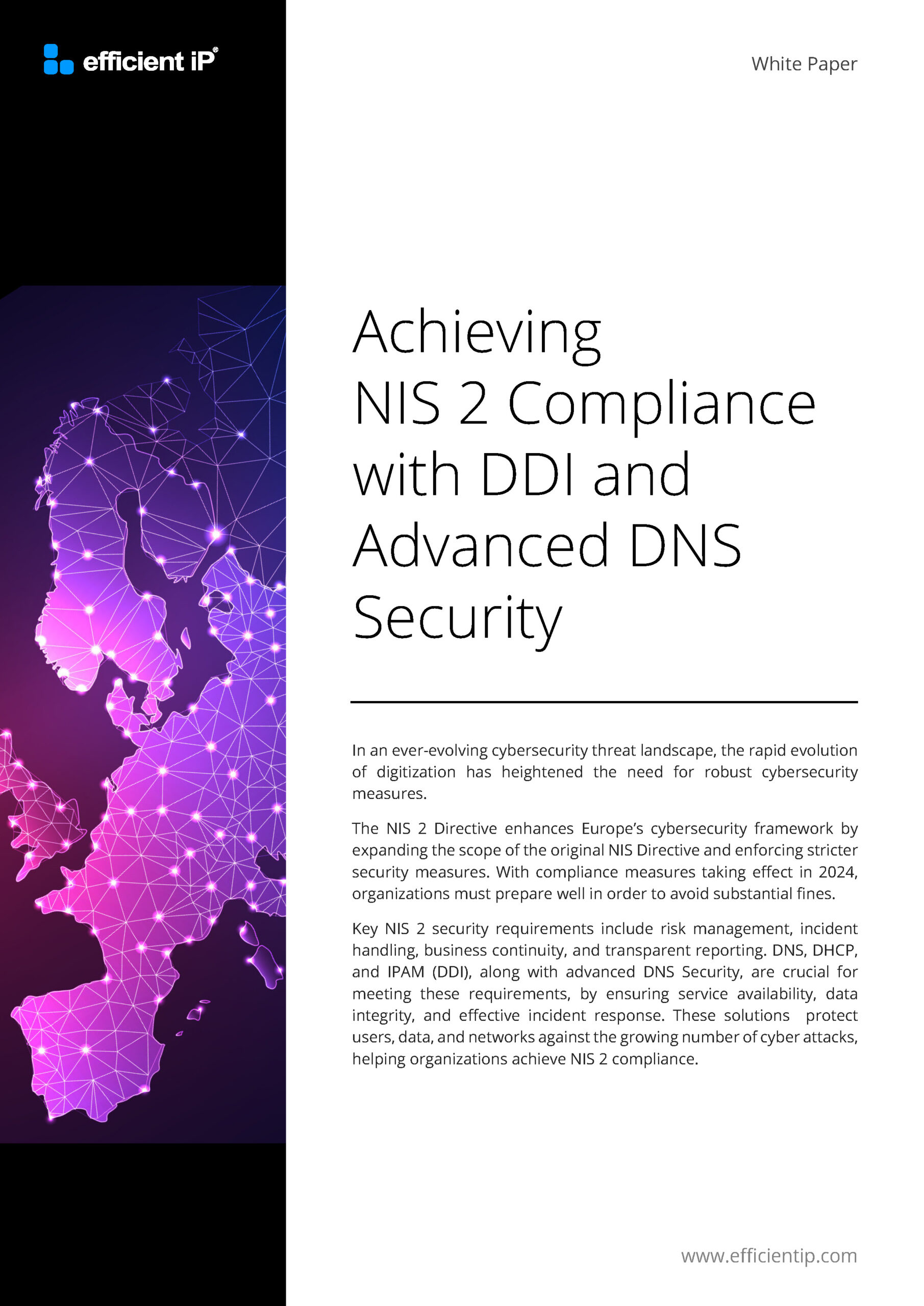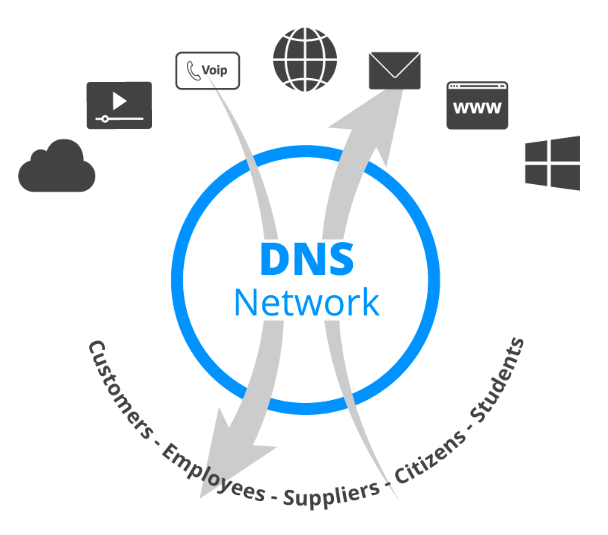Key Takeaways from the White Paper
Innovative DDI solutions, together with advanced DNS Security, offer a robust framework for network and information system security to increase cyber resilience and protect digital infrastructure. They are critical to meeting key NIS 2 requirements:
1. Ensuring Risk Management: DDI solutions with advanced DNS Security improve risk management with comprehensive, accurate, and up-to-date asset inventory and advanced analytics, providing deep visibility.
2. Effective Incident Handling: Smart DNS Security solutions prevent, detect, and respond to incidents quickly and effectively. Security teams can identify and counteract threats like cache poisoning, DNS tunneling, malware, zero-day DNS attacks, data exfiltration, and C&C.
3. Maintaining Business Continuity: DNS Security incorporating adaptive countermeasures helps minimize business impacts of cyber incidents, and ensures critical services and apps can continue to function.
4. Achieving Transparent Reporting: DDI and DNS Security delivering insightful DNS intelligence, metrics, and analytics provide the detailed reporting required by NIS 2. Data sharing with other security components ensures comprehensive threat visibility and efficient incident reporting.

